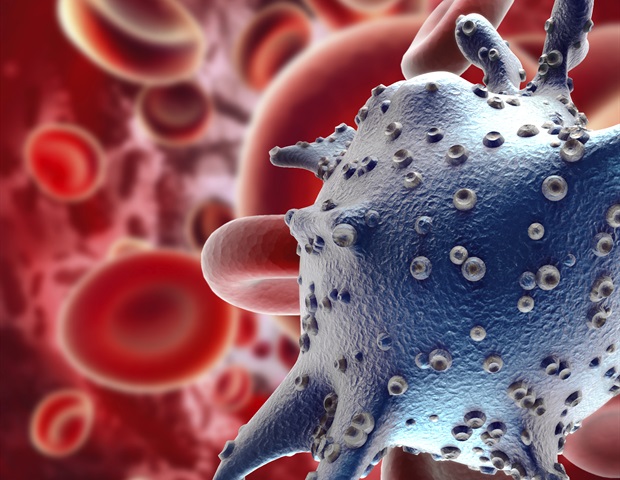
New research reveals a clear link between green tea consumption and fewer brain lesions, shedding light on its potential to safeguard cognitive health in aging populations. Study: Green tea consumption and cerebral white matter lesions in community-dwelling older adults without dementia . Image Credit: New Africa / Shutterstock.
com A recent study published in the Nature Portfolio Journal Science of Food reveals that higher green tea consumption is associated with fewer lesions in the cerebral white matter, a characteristic feature of dementia. The impact of tea and coffee on cognition Green Tea's Antioxidant Properties: Catechins in green tea, particularly epigallocatechin gallate (EGCG), exhibit neuroprotective effects by scavenging free radicals, reducing inflammation, and inhibiting amyloid β aggregation, which are linked to Alzheimer’s disease pathology. Tea and coffee, the most popular beverages worldwide, contain numerous compounds with neuroprotective properties, including caffeine, polyphenols, and vitamins.

Green tea, black tea, and coffee also contain epigallocatechin gallate, theaflavins, chlorogenic acid, and caffeic acid, all of which exhibit antioxidant and anti-inflammatory properties. Several epidemiological studies have reported that tea or coffee consumption reduces the risk of age-related cognitive decline. Dementia, a neurodegenerative disease that causes cognitive decline, is associated with a wide range of brain structural changes, including brain atrophy, hippocampal atrophy, and an increase in cerebral white matter lesions.
Previous studies have reported that green tea consumption is associated with reduced annual hippocampal atrophy, whereas regular coffee consumption can increase the thickness of brain cortices. To further explore these associations, the current study's researchers investigate the associations between green tea and coffee consumption with cerebral white matter lesions, hippocampal volume, and total brain volume in an older Japanese population without dementia. Study design The current study included 8,766 community-dwelling individuals from the Japan Prospective Studies Collaboration for Aging and Dementia (JPSC-AD) who were recruited between 2016 and 2018.
The JPSC-AD is an ongoing community-based observational study of dementia conducted in eight regions throughout Japan. Study participants underwent brain magnetic resonance imaging (MRI) to assess cerebral white matter lesions, hippocampal volume, and total brain volume. Additionally, all study participants completed a Food Frequency Questionnaire to provide information on their daily frequency of green tea and coffee intake.
Approximately 91% and 82% of the study population reported drinking green tea and coffee, respectively. Study participants with higher daily green tea intake reported significantly higher levels of regular exercise and cognitive functions, as well as lower levels of smoking and alcohol drinking habits and depression. However, individuals with higher daily coffee intake reported significantly higher frequencies of diabetes, smoking habits, and cardiac abnormalities.
Association between green tea or coffee intake and brain changes Cultural and Dietary Specificity: The study exclusively included older Japanese participants, highlighting the need to explore whether the observed benefits of green tea extend to populations with different genetic, dietary, and lifestyle factors. Potential confounding factors adjusted for in the analysis include age, sex, research site, educational level, apolipoprotein E (ApoE) ε4 carrier status, hypertension, body mass index (BMI), serum low- and high-density lipoprotein cholesterol levels, regular exercise, and smoking and drinking habits. The study revealed a dose-dependent association, with individuals consuming 600–1500 ml of green tea daily experiencing significantly fewer cerebral white matter lesions compared to those with lower consumption levels.
After adjusting for these factors, higher daily green tea intake was significantly associated with fewer lesions in the cerebral white matter. However, no significant associations were observed between green tea intake and hippocampal or total brain volumes. Considering daily coffee intake, no significant associations were observed with cerebral white matter lesions, hippocampal volume, and total brain volume.
This contrasts with some prior studies, which have reported positive effects of coffee on brain health in different populations. Sensitivity analysis The associations between green tea or coffee intake and brain changes in the sensitivity analysis were similar to those observed for the entire study population, including participants with normal cognitive functions and mild cognitive impairment. Notably, strong negative associations were observed between green tea intake and cerebral white matter lesions in study participants without depression but not in participants with depression.
Similarly, significant negative associations were reported in participants without the ApoE ε4 allele but not in those with the allele, suggesting these factors may mediate green tea's protective effects. Conclusions Hypertension Reduction: Meta-analyses referenced in the study report that regular green tea consumption can lower systolic blood pressure by an average of 6.22 mmHg and diastolic pressure by 2.
36 mmHg, suggesting a potential mechanism for its effect on cerebral white matter lesions. A higher daily intake of green tea can significantly reduce the risk of cerebral white matter lesions in older adults without dementia; however, these benefits were not present in individuals who consumed coffee daily. Cerebral white matter lesions are considered an independent risk factor for cognitive decline and are associated with vascular dementia and Alzheimer’s disease.
Larger white matter lesions typically arise with severe brain atrophy in patients with Alzheimer’s disease. The most significant risk factor for white matter lesions is hypertension or increased blood pressure. The beneficial impact of green tea on white matter lesions might be attributed to its antihypertensive effects, as several studies have reported that regular green tea intake may reduce both systolic and diastolic blood pressure levels.
The beneficial effects of green tea intake were restricted to participants without depression and the ApoE ε4 allele. This may indicate that green tea is less effective in individuals with these risk factors for dementia, possibly due to residual confounding or smaller sample sizes in these subgroups. Since depression and the presence of ApoE ε4 are substantial risk factors for dementia, green tea may not effectively reduce white matter lesions in individuals at higher risk of developing dementia, necessitating additional studies in these patient populations.
It is important to note that this study focused on an older Japanese population, and cultural dietary practices may limit the generalizability of these findings to other ethnicities and regions. Further research is needed to confirm these associations in more diverse populations. Shibata, S.
, Noguchi-Shinohara, M., Shima, A., et al.
(2025). Green tea consumption and cerebral white matter lesions in community-dwelling older adults without dementia. npj Science of Food .
doi:10.1038/s41538-024-00364-w..















